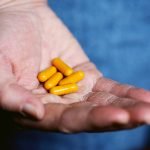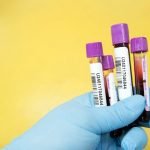Daily exercise may help slow breast cancer growth
In a new study from Harvard Medical School, researchers found that exercise training may slow tumor growth and improve outcomes for females with breast...
This supplement may help boost COVID-19 recovery
In a recent study, scientists found that for hospitalized patients with COVID-19, zinc sulfate may improve health outcomes.
The finding is from New York University....
Early cannabis use linked to heart disease, study finds
In a new study from the University of Guelph, researchers found that smoking cannabis when you're young may increase your risk of developing heart...
Another way “good” cholesterol is good: combatting inflammation
In a new study from the Karolinska Institute, researchers found that testing how well “good” cholesterol particles reduce inflammation may help predict who is...
Big loss of pleasure linked to early dementia
People with early-onset dementia are often mistaken for having depression.
In a new study from the University of Sydney, researchers have discovered the cause: a...
Using this common drug before diagnosis may lower colon cancer death risk
In a recent study at the American Cancer Society, researchers found that long-term aspirin use before a diagnosis of colorectal cancer is linked to...
This study shows the cause of ‘brain fog’ in people with COVID-19
In a recent study from Memorial Sloan Kettering, researchers found an underlying cause of the COVID brain: the presence of inflammatory molecules in the...
Heart failure and stroke rising in men under 40, study finds
In a new study from the University of Gothenburg, researchers found that Heart failure and stroke are unusual diagnoses among younger people.
But they are...
Colonoscopy: Yes, this is a test
Colorectal cancer is the second leading cause of cancer death for both men and women, according to the Centers for Disease Control and Prevention...
This study shows new way to effectively prevent Alzheimer’s disease
In a recent study at the International Center for Biomedicine, researchers developed an integrated method for the effective prevention of Alzheimer’s disease.
The integrated approach...










